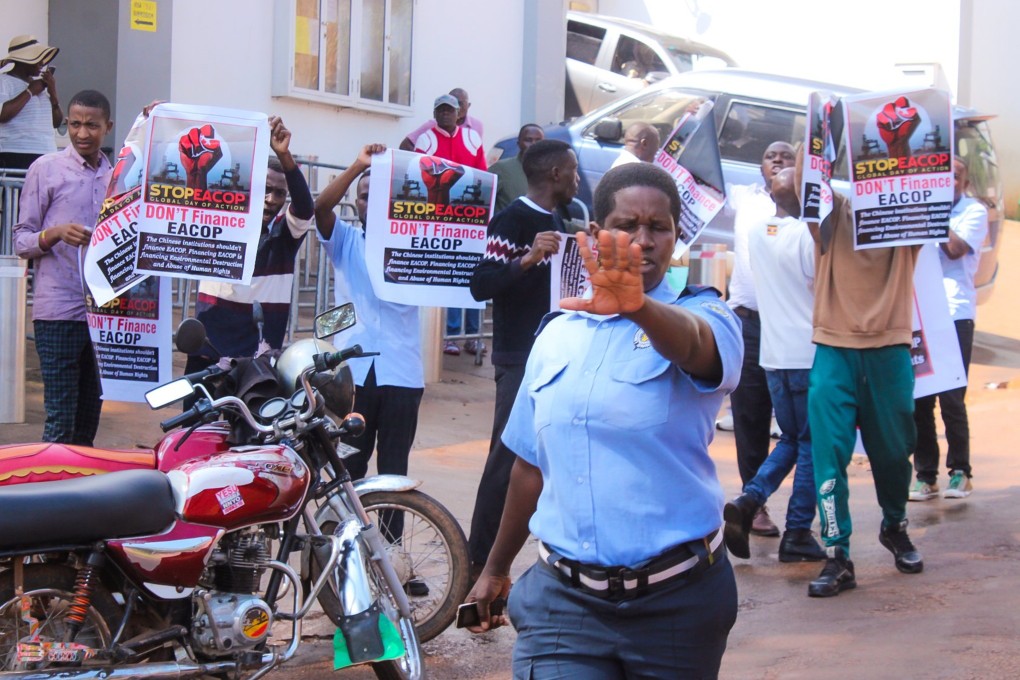China targeted by climate campaigners over controversial East Africa oil pipeline project
- Environmentalists protest against Chinese support for the East African Crude Oil Pipeline, after Western lenders backed out of the project
- But the demonstrations in African and Western cities are unlikely to deter China from supporting the projects

The protests were staged in Kampala in Uganda, Dar es Salaam in Tanzania, and Kinshasa in the Democratic Republic of the Congo (DRC), with solidarity demonstrations in South Africa, Paris, New York and London.
Activists want Chinese lenders – including state-owned China Export & Credit Insurance Corporation (Sinosure), Export-Import Bank of China (Eximbank), and Industrial and Commercial Bank of China (ICBC) – to drop their plans to bankroll the controversial US$5 billion project.
The development of the Ugandan oilfields and the pipeline threaten pristine ecosystems, biodiversity hotspots, water resources and community land, according to the activists behind the StopEACOP campaign.
The activists said China and Chinese firms should not be a “last resort” for a project with a devastating social and environmental impact on Africa.
